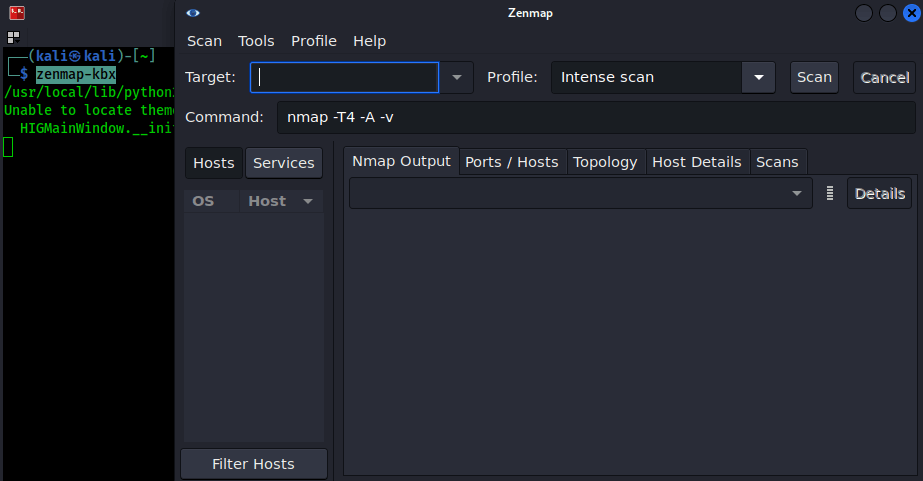

- SUDO APT UPDATE PYTHON HOW TO
- SUDO APT UPDATE PYTHON INSTALL
- SUDO APT UPDATE PYTHON MANUAL
- SUDO APT UPDATE PYTHON UPGRADE
- SUDO APT UPDATE PYTHON SOFTWARE
SUDO APT UPDATE PYTHON SOFTWARE
Most of the advice on that page is geared towards what to do if you want the software to be available system-wide, but I don't think that's necessary in this case. The official recommendation is "you don't actually need newer software"ĭon't suffer from Shiny New Stuff Syndrome - DontBreakDebian | Debian Wiki The proper and officially accepted procedureīut I must point it out that this is not official solution because it uses testing repositories.
SUDO APT UPDATE PYTHON INSTALL
$ sudo apt-get -t testing install python3.6 $ echo 'APT::Default-Release "stable" ' | sudo tee -a /etc/apt//00local
SUDO APT UPDATE PYTHON HOW TO
This is known as a FrankenDebian.Ĭonsider the other answers to this question instead, in particular this one showing how to build from source, and this one showing how to use virtual environments.ĭebian does not have Python 3.6 in its repositories, but testing has it. The resulting setup won’t benefit from security updates with the same speed as might be expected, for packages which are updated. This will result in a system which mixes Debian releases, and will affect more than Python - in most cases, applying these instructions will pull in newer libraries too. Warning: this answer shows how to install Python from future releases of Debian. Press to keep the current choice, or type selection number:
SUDO APT UPDATE PYTHON MANUAL
* 0 /usr/local/bin/python3.7 50 auto modeģ /usr/local/bin/python3.7 50 manual mode Sample output: There are 3 choices for the alternative python (providing /usr/bin/python). To switch between them, use: update-alternatives -config python The python3.7 with the 50 priority is now your default python, the python -V will print: Python 3.7.0b2 Update-alternatives -install /usr/bin/python python /usr/bin/python3.5 30 Update-alternatives -install /usr/bin/python python /usr/bin/python2.7 40 e,g: /usr/local/bin/python3.7Īdd the python versions: update-alternatives -install /usr/bin/python python /usr/local/bin/python3.7 50 Let's say you have installed the python3.7 on debian stretch, use the command whereis python to locate the binary ( */bin/python). To set a default python version and easily switch between them, you need to update your update-alternatives with the multiple python version. You can download the latest python-x.y.z.tar.gz from here. Libreadline-dev libsqlite3-dev wget curl llvm libncurses5-dev libncursesw5-dev \Īlternative of libreadline-dev: sudo apt install libedit-devįedora/CentOS/RHEL(aws ec2): sudo yum install zlib-devel bzip2 bzip2-devel readline-devel sqlite sqlite-devel \Īlternative of openssl-devel: sudo yum install compat-openssl10-devel -allowerasing

Ubuntu/Debian: sudo apt-get install -y make build-essential libssl-dev zlib1g-dev libbz2-dev \ Some packages need to be installed to avoid some known problems, see: Common build problems(updated) make altinstall is therefore recommended instead of make install since it only installs exec_prefix/bin/pythonversion. Warning: make install can overwrite or masquerade the python binary. If you want pip to be included, you need to add -with-ensurepip=install to your configure call. It is recommended to use make altinstall according to the official website. configure -enable-optimizations -enable-shared How Bizarre! going to comment out line 2! will post results.You can install Python-3.6 on Debian 8 as follows: wget Thank you in advanced.īig Edit: cat /etc/apt//pgdg.list Now can someone explain what is actually going on, why are they configured multiple times? Are these backups? How do I go about tidying the multiple logs up? Is it safe to do so? Little confused here. W: Target Packages (main/binary-amd64/Packages) is configured multiple times in /etc/apt//pgdg.list:1 and /etc/apt//pgdg.list:2 W: Target CNF (main/cnf/Commands-all) is configured multiple times in /etc/apt//pgdg.list:1 and /etc/apt//pgdg.list:2 W: Target CNF (main/cnf/Commands-amd64) is configured multiple times in /etc/apt//pgdg.list:1 and /etc/apt//pgdg.list:2 W: Target Translations (main/i18n/Translation-en) is configured multiple times in /etc/apt//pgdg.list:1 and /etc/apt//pgdg.list:2 W: Target Packages (main/binary-all/Packages) is configured multiple times in /etc/apt//pgdg.list:1 and /etc/apt//pgdg.list:2 This was great for the first two to three months until these messages started to appear. I have been using the commands sudo apt-update and then sudo apt-upgrade.
SUDO APT UPDATE PYTHON UPGRADE
Although I have not touched the kernel upgrade stuff. I also know I have to keep my system up to date. I have downloaded a few programs like (Python 3 et el). So I am running WSL 2, and acquired the ubuntu 20.04 LTS installation through the windows store.


 0 kommentar(er)
0 kommentar(er)
